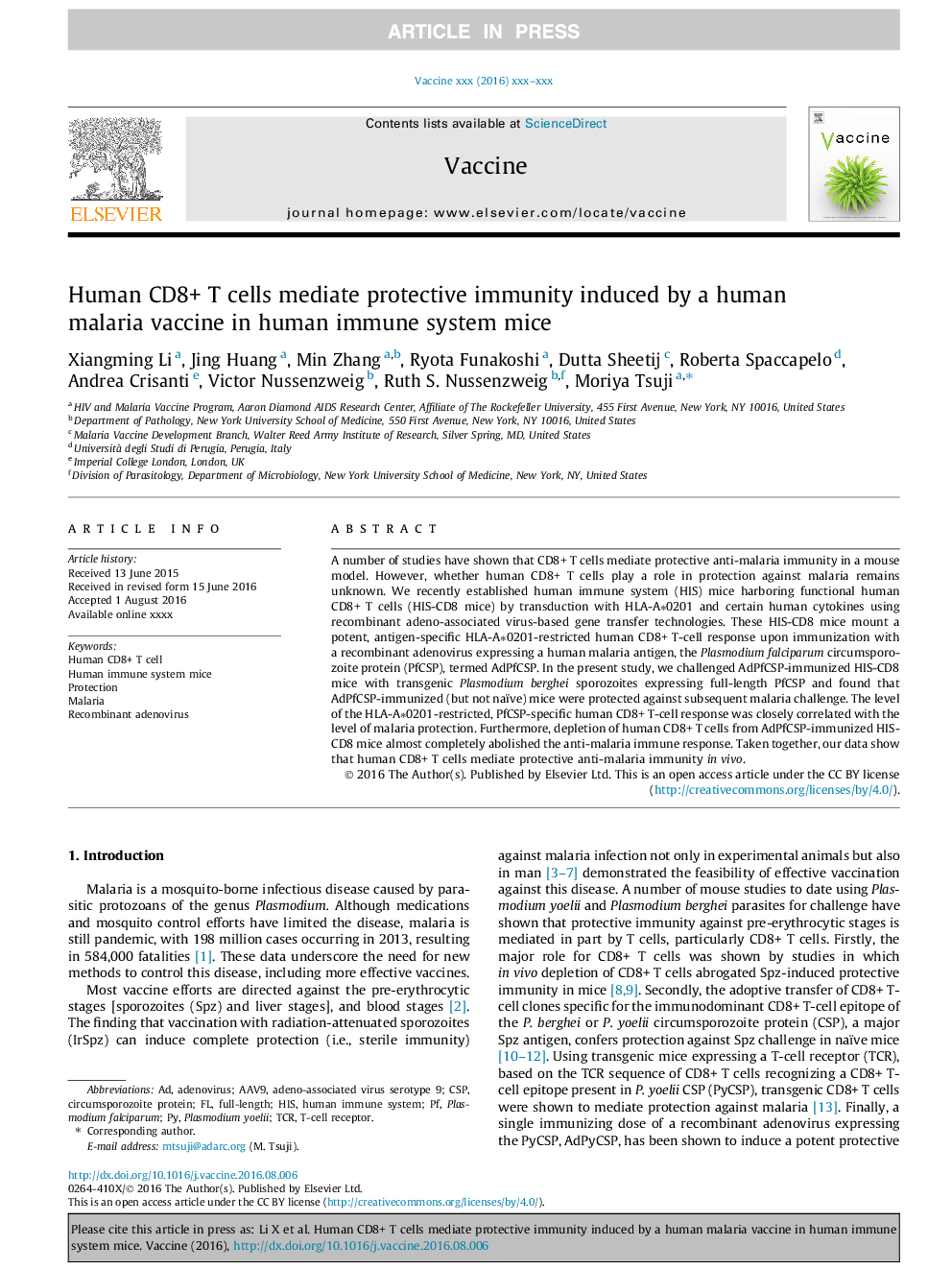| Article ID | Journal | Published Year | Pages | File Type |
|---|---|---|---|---|
| 10962368 | Vaccine | 2016 | 6 Pages |
Abstract
A number of studies have shown that CD8+ T cells mediate protective anti-malaria immunity in a mouse model. However, whether human CD8+ T cells play a role in protection against malaria remains unknown. We recently established human immune system (HIS) mice harboring functional human CD8+ T cells (HIS-CD8 mice) by transduction with HLA-Aâ0201 and certain human cytokines using recombinant adeno-associated virus-based gene transfer technologies. These HIS-CD8 mice mount a potent, antigen-specific HLA-Aâ0201-restricted human CD8+ T-cell response upon immunization with a recombinant adenovirus expressing a human malaria antigen, the Plasmodium falciparum circumsporozoite protein (PfCSP), termed AdPfCSP. In the present study, we challenged AdPfCSP-immunized HIS-CD8 mice with transgenic Plasmodium berghei sporozoites expressing full-length PfCSP and found that AdPfCSP-immunized (but not naïve) mice were protected against subsequent malaria challenge. The level of the HLA-Aâ0201-restricted, PfCSP-specific human CD8+ T-cell response was closely correlated with the level of malaria protection. Furthermore, depletion of human CD8+ T cells from AdPfCSP-immunized HIS-CD8 mice almost completely abolished the anti-malaria immune response. Taken together, our data show that human CD8+ T cells mediate protective anti-malaria immunity in vivo.
Keywords
Related Topics
Life Sciences
Immunology and Microbiology
Immunology
Authors
Xiangming Li, Jing Huang, Min Zhang, Ryota Funakoshi, Dutta Sheetij, Roberta Spaccapelo, Andrea Crisanti, Victor Nussenzweig, Ruth S. Nussenzweig, Moriya Tsuji,
